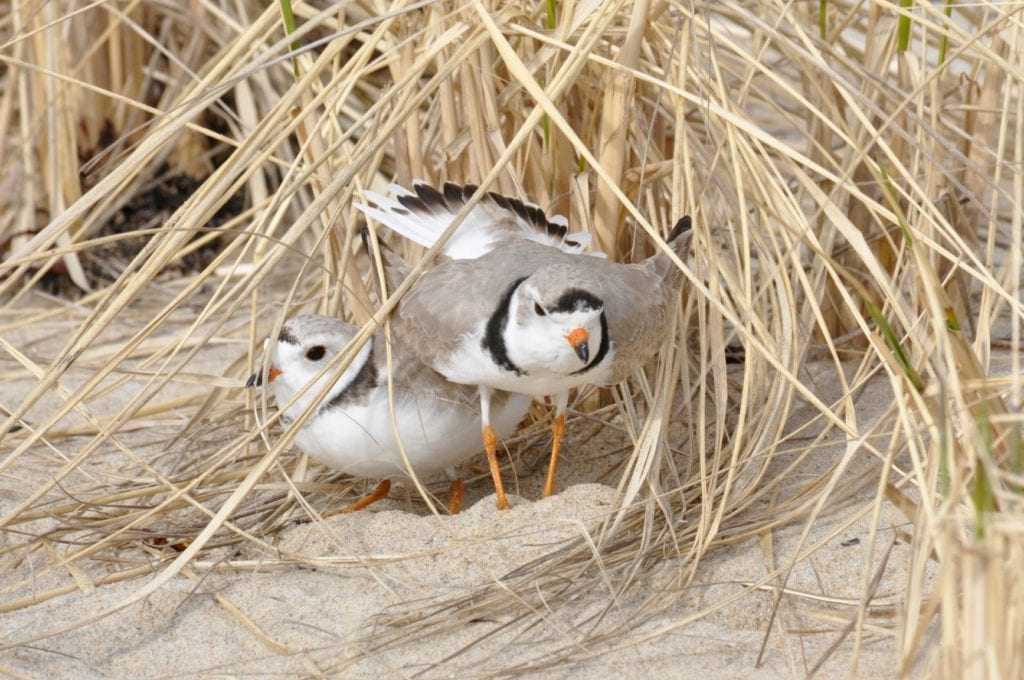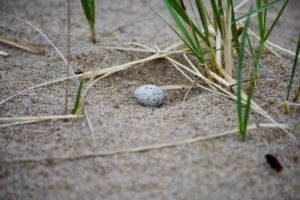
Spring is here and that means so are the Piping Plovers and Least Terns. The 2021 Coastal Birds Crew is already hard at work scanning sandy dunes and seaweed-covered wrack lines from Georgetown to Ogunquit. Over the past few weeks, the crew’s primary focus has been surveying for Piping Plover tracks and scrapes: small circular depressions in the sand where these birds push away sand, gravel and shells to lay their eggs. It’s been a crucial time for the Coastal Birds Crew to put up management in areas of high nesting activity to deter traffic from people and dogs.
Already, at least 80 nesting pairs have been spotted, scraping and settling on Maine’s beaches (see a pair scraping, in the photo (above) taken by volunteer Missy Mans). Coastal Birds Manager Laura Minich Zitske says, “so far we have 18 active nests identified, but we know there are more out there and more eggs will be laid over the weekend. Please keep an eye out for nests outside of management or in unexpected areas as we are scrambling to get management up at all our sites. The weather this week has also made it difficult to identify nesting areas, so who knows what’s out there!”

Meet the team!
Laura Williams, Head Seasonal Biologist: Laura is returning for her third year with the Plover Crew. She has a Bachelor of Science degree in Wildlife Conservation from Unity College and has expertise in a wide array of species, survey methods, habitat classifications, and public outreach.
Emma Palmer, Outreach Fellow and Biotech: A recent graduate of Colgate University with a background in ecosystem ecology and non-profit outreach, she is especially drawn to science communication roles that support protecting Maine’s coastal species.
Sam Smith, Seasonal Biologist: Sam grew up in Maine and recently successfully defended her Master’s thesis on the spatial ecology and habitat selection of native Burmese pythons, data she collected while studying in Thailand.
Jo Sehon, Biological Technician: Growing up visiting Maine’s southern beaches in all seasons and listening to their stepfather describe his work with plovers and Least Terns and their habitat needs, Jo first learned how the expectations of beachgoers influence the wellbeing of these specialized and important species.
